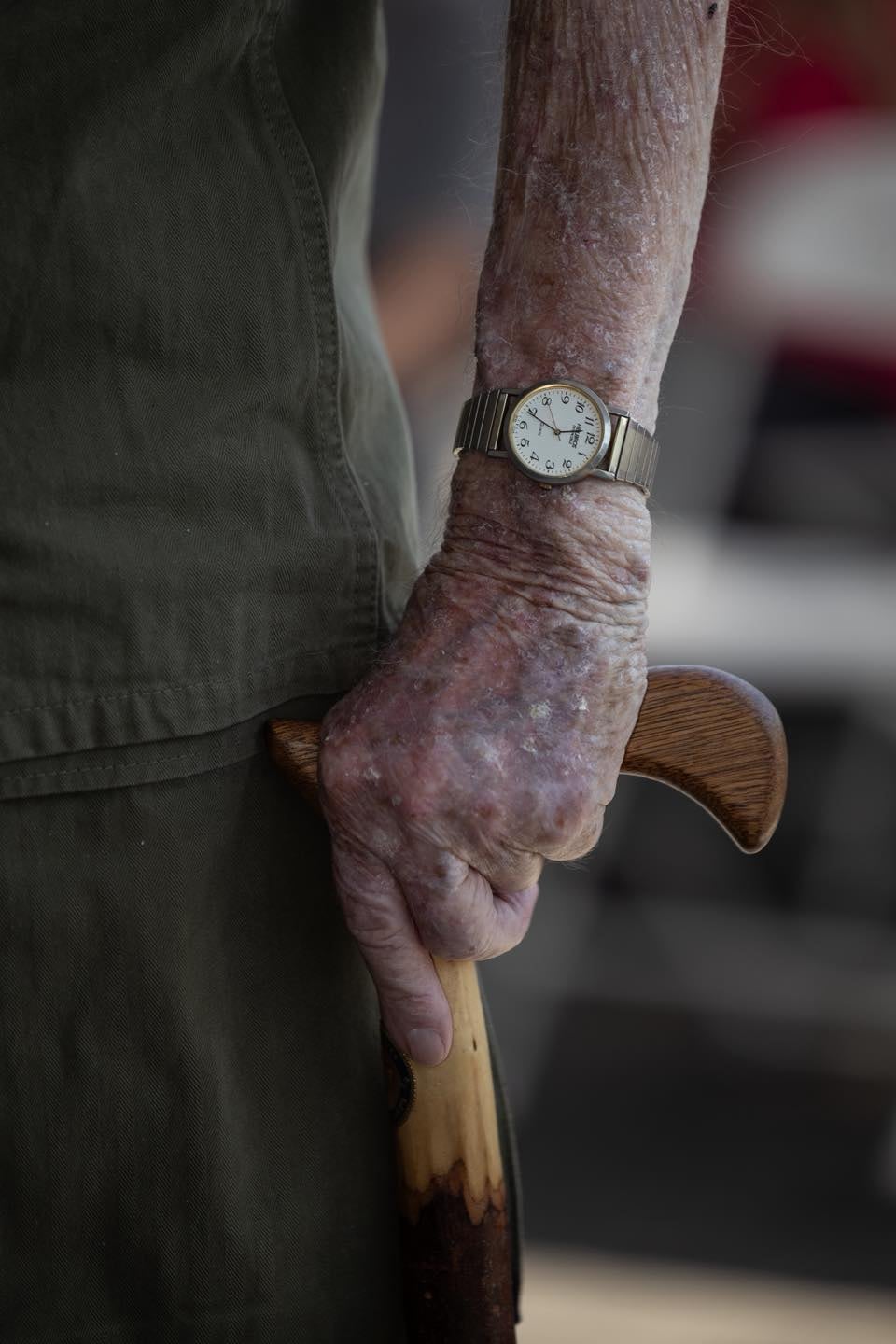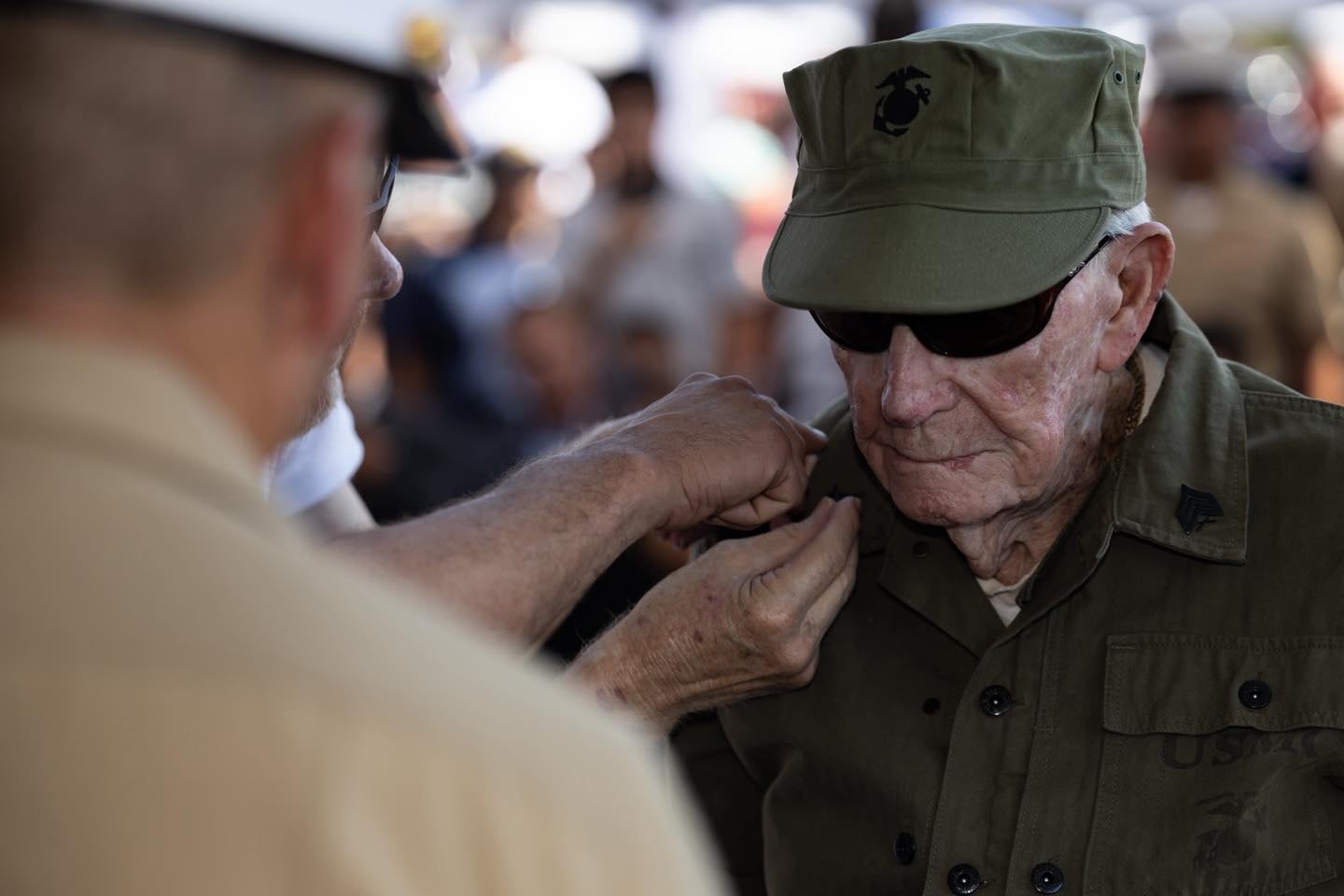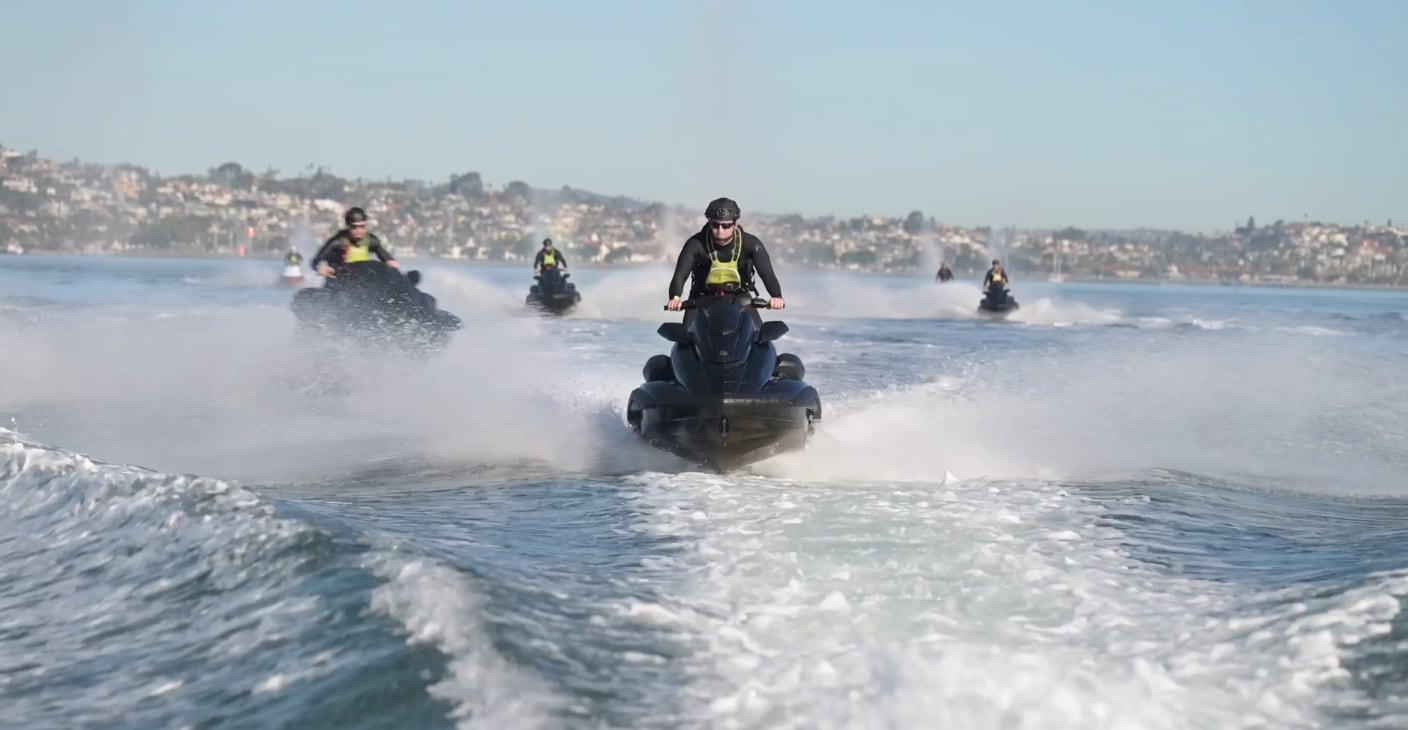At just 16, Frank S. Wright lied about his age to enlist in the U.S. Marine Corps.
He entered the ranks of the 4th Marine Raiders and later the 21st Marines, 3rd Marine Division, and went on to fight in Guadalcanal, New Georgia, Guam and Iwo Jima.
He was bayoneted in the stomach while liberating Guam and shot in the chest and arm by enemy machine-gun fire during the Battle of Iwo Jima.
Days ago, in a ceremony in Stockton, California, the now 100-year-old was promoted from corporal to honorary sergeant by the 39th Commandant of the Marine Corps, Gen. Eric M. Smith — 79 years after his initial discharge.

Wright’s war
Inspired by President Franklin D. Roosevelt’s words that “Every single man, woman and child is a partner in the most tremendous undertaking of our American history,” Wright walked into his local enlistment office on Jan. 21, 1942, determined to do his bit. But he hit roadblocks: He was too young and too skinny.
Using his older brother’s birthday got him around one barrier … while bananas got him around the other.
“I went home and I got me about five pounds of bananas and put them in my pockets, my jacket,” Wright told CBS News. “I got enough so I could pass the weight part.”
Wright initially served in the 4th Raider Battalion, which was activated on Oct. 23, 1942 and commanded by Maj. James Roosevelt, who had been the XO to famed 2nd Marine Raiders’ Lt. Col. Evans Carlson. As part of the unit, Wright was almost immediately plunged into battle.
After hellish conditions on Guadalcanal, Wright openly recalled being bayoneted during vicious hand-to-hand fighting during the Battle of Guam.
“I tripped and a [Japanese soldier] stabbed me in the stomach as I was going down and then fell on top of me,” Wright wrote in his first book, “Battles in the Pacific: World War II, My Personal War Causing PTSD”.
“Taking the life of a person with a knife is a lot different than shooting someone with a rifle from fifty yards away,” Wright recounted in his second book. “When you see him up close, look into his eyes and hear him yell, well, it’s very different.”
According to Wright, the corpsman dressed his stomach and told him to finish the patrol “since [he] was able to walk.”
Iwo to the end
Disembarking from the combat ship Jackson on Feb. 19, 1945, the hardened Marine described the scenes upon Iwo Jima as his “first real look at a place called HELL on water.”
“It was hand-to-hand fighting from the day we arrived to the day I left,” Wright continued. “It was hard all the way through.”
While charging up a hill March 3, a Japanese soldier shot Wright in the chest. The bullets went through his right side, cracked his clavicle and punctured his lung — exiting through his left arm.
Wright was medically evacuated, eventually returning to full duty to finish his career as a drill instructor, according to a Camp Pendleton social media post. He was honorably discharged in 1946.
By war’s end, Wright’s military awards included the Purple Heart with two stars, Presidential Unit Citation with two stars, Navy Unit Commendation, American Campaign Medal, Asiatic-Pacific Campaign with three service stars, Fleet Marine Force with four stars, Marine Corps Expeditionary Medal, Combat Action with four stars, Victory Medal and the Good Conduct Medal.
Now, at 100, he is a sergeant.
Claire Barrett is an editor and military history correspondent for Military Times. She is also a World War II researcher with an unparalleled affinity for Sir Winston Churchill and Michigan football.





